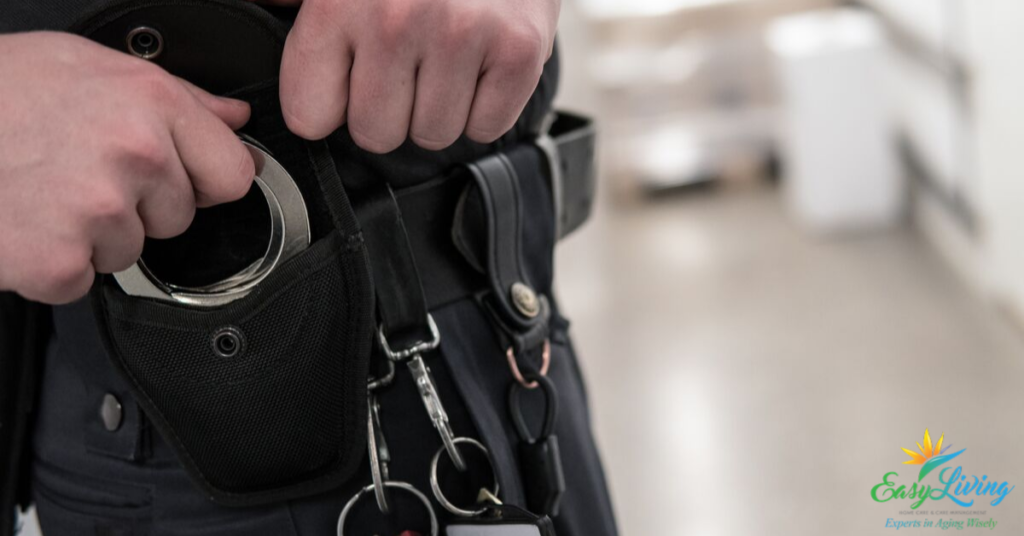We were saddened to see the shocking story coming out of Clearwater recently about a caregiver accused of sexual assault. In this case, the nursing assistant has been accused of six assaults. Worse yet, investigators may continue to find other victims. And, given the vulnerability and potential memory problems and declining health of possible victims, it’s quite possible some will never be reported.
When you’re caring for an elderly loved one, such news probably stirs up a lot of anxiety and fear. As professionals providing quality care, we also feel horrified to imagine vulnerable elders being assaulted by the very caregivers entrusted with their care. We feel a responsibility to provide education and resources around this topic. Though it is probably impossible to eliminate all elder abuse, we hope to provide some tips that can be used in the protection of our vulnerable loved ones.
Prevalence of Elder Abuse
Fortunately, it does seem that sexual abuse of elders by caregivers is a fairly rare phenomenon. Out of all elder abuse and neglect reports, only about 7% were of sexual abuse. Also, resident-on-resident incidents make up a big portion of nursing home abuse. (This statistic highlights the importance of monitoring, care planning and staff interventions.)
Unfortunately, elder abuse (and nursing home abuse specifically) is not that rare. Data indicates that perhaps 1 in 10 elders over the age of 60 have been abused. And a New York study found a rate of 1 in 3. One study reported that as many as 24.3% of nursing home residents experienced at least one instance of physical abuse.
But, the reality is that by far the most abuse and neglect comes from family members (estimates say about 90%). That is another issue, which we address in other articles. Today, we aim to tackle elder abuse by professional caregivers and some prevention and monitoring steps.
Preventing Nursing Home Abuse and Elder Abuse by Caregivers
Background Checks and Regulation
States have put rules in place requiring background checks and other measures to try to keep abusers and those with risky histories from caring for vulnerable elders. This serves as a first line of defense against elder abuse. You should always be sure to use licensed providers that must comply with such regulations.
Systematic Problems
Of course, this recent case reveals how the system can fail. It seems the perpetrator has been accused of multiple assaults and is in violation of probation from a previous incident. Hopefully the investigation will reveal the holes in the system that allowed him to continue caring for patients. Additionally, many abusers have never been previously convicted. Background checks will only show prior convictions, and much abuse goes unreported.
Therefore, our elders need a system of strong hiring, training, monitoring and oversight. Because care professionals are in high demand, it may be too easy for nursing homes and other providers to bypass a stringent process. As a family member, looking at the overall quality of care and strength of management can help you find the safest place for your loved one. A nursing home’s poor ratings tend to indicate some mismanagement, which may allow such incidents to more easily take place.
Training and Supervision
Unfortunately, we often find training and supervision lacking in the eldercare industry. And, this is a high-stress and high-responsibility job which really requires solid training and support. Caregivers may have to deal with a high level of work with little reward or thanks. Clients can be abusive themselves at times. And, the work is often physically and emotionally demanding. A caregiver may have to deal with a wide array of tasks from clients who want things done differently or have different needs.
Our recommendation here is to always ask providers about their training program and how they supervise staff. At a nursing home, for example, is there a manager on duty on weekends and nights? What type of continuing education do they provide? How do they handle staff reviews? Do they use contract staff, and how do they obtain and oversee them if so? For home care, you may also want to find out if supervisors make home visits and how managers check on client satisfaction.
Oversight
Our vulnerable elders need monitoring to help prevent abuse, neglect and even errors and problems that may otherwise go unnoticed. Someone checking in regularly makes them less vulnerable. A professional advocate can spot problems and ask important questions. They may notice irregularities. This could be something amiss that would eventually lead to abuse. Or, more quickly uncovering abuse that could worsen and affect others.
Here are some more tips about ensuring your loved one gets the best care in a facility and with in-home care. These tips on visiting a loved one in an ALF can be useful as well.
Advocacy goes hand-in-hand with oversight. A professional advocate can help you not only identify concerns, but to be sure they are addressed properly. Of course, they can also be helpful throughout the process…from identifying quality care facilities to regular monitoring and troubleshooting. They can help you understand your rights and the process to get resolutions for concerns.
We understand how disturbing reading this news and information can be. Together, we can all do more to protect our elders. If you suspect elder abuse in Florida, you can make a report to (800)96ABUSE or (800) 962-2873. You can also report nursing home abuse or complaints to the Long-Term Care Ombudsman: 1-888-831-0404 (toll-free) or 1-850-414-2323. Here’s a list of Florida agency contacts for long-term care facility concerns.
Concerned about a loved one?
Talk to one of our care manager advocates.







